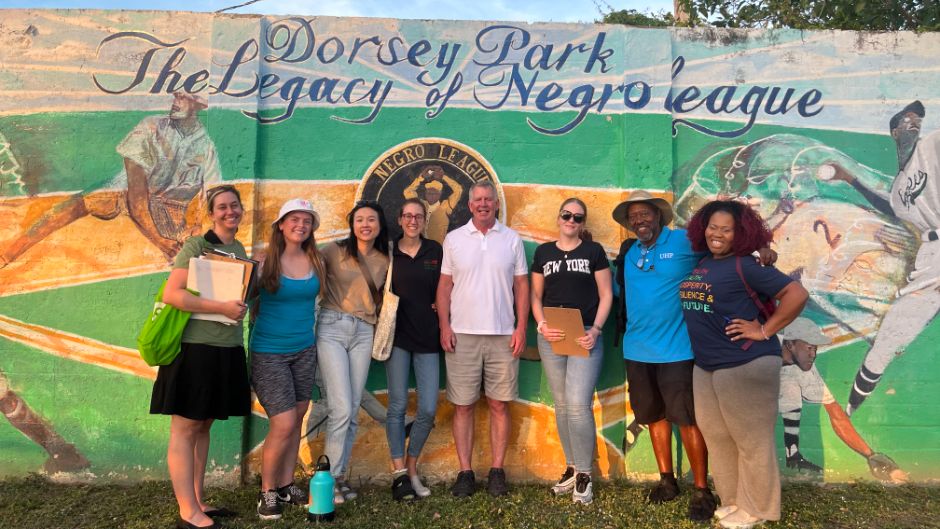This year, the Environmental Justice Clinic at the University of Miami School of Law partnered with Urban Health Partnerships, Overtown Children and Youth Coalition, and Catalyst Miami to bring attention, investment, and action to the environmental injustices experienced in and around Overtown's public parks.
UHP, OCYC, and Catalyst Miami lead the Overtown Parks Group.
"The group is a resident-led advocacy group working to improve Overtown's public spaces and seeks community-driven solutions for improving the parks," said Jen Cheek, Healthy Streets & Public Spaces director at UHP.
"We do this through community events, surveys, and assessments of the five City of Miami-operated parks in the neighborhood. Even as a newly formed group, OPG has led 65 community park assessments in five Overtown parks, developed a Community Action Plan, established a communications network, and began advocating for our priorities with elected officials, government agencies and community partners," said Cheek.
In response to Overtown residents' desire for an outlet to elevate their voices and bring attention and investment into the neighborhood, OPG partnered with the Environmental Justice Clinic to build a liberating policy campaign to explore potential avenues for remediation and corrective action.
As part of the campaign, second-year law students, Sophia Pastorini and Suzannah Friscia, worked with UHP and OCYC to create a comprehensive environmental assessment and overview of the five parks.
As part of the work, the students, alongside OPG, canvassed the surrounding neighborhoods near Dorsey Park and Henry Reeves Park in Overtown to learn more about the residents and how they engage with the parks.
"Speaking with residents highlighted the continued impacts of the historical disinvestment and systemic racism in Overtown," said Friscia. "Residents continue to suffer from unequal exposure to environmental hazards."
Through canvassing, the team built relationships with residents and continued creating a network to support campaign initiatives.
"Connecting with residents to hear their stories is an essential part of the environmental justice movement," said Keith Ivory, community liaison at UHP. "We will continue to elevate their voices to ensure they are at the forefront of decision-making in Overtown.”
Read more about Miami Law’s clinics.
Read about Miami Law’s Environmental Law Program.

